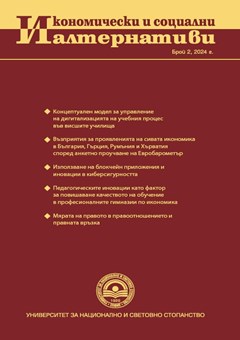Can Innovation Stimulate Income Inequality in South Asia?
Authors: Abdul Rehman Nawaz, Hafiz Ghulam Mujaddad
Abstract
Income inequality can jeopardize social cohesiveness, stifle economic growth, trigger a recession, and slow the rate of economic development. It may also cause social unrest and dispute, which are the determinants of economic growth. The Schumpeterian growth hypothesis is tested by employing the quantile regression to examine the role of innovation in determining income inequality for the selected South Asian countries. The empirical findings show that innovation, especially the number of patent applications, has a statistically significant and positive association with income inequality in South Asia which increases income inequality. For sustainable economic growth, everyone must be given equal economic opportunities in the economy, and the government must abolish capitalists’ oligopoly on wealth. Similarly, everyone must be given equal opportunities to innovate because innovation encourages not only productivity but also economic growth in the long run.

